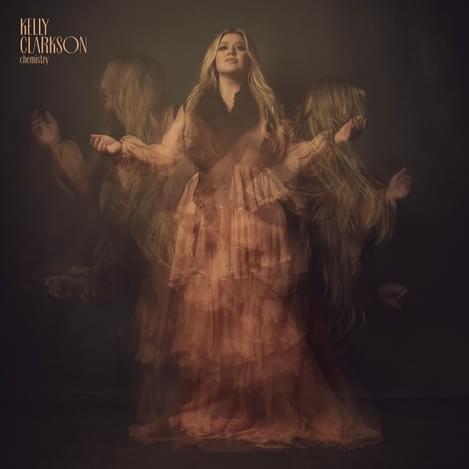Chemistry cements Kelly Clarkson’s pop icon status
"Chemistry"

Later albums of Kelly Clarkson have felt more like compilations of fruitful collaborations than expansive collections of personal stories.
Since 2007’s My December, which began with the iconic opening line so enveloped in ire and jealousy it might have caught you gasping (“I hope the ring you gave to her turns her finger green”), she’s often let producers and songwriters write songs for her, handing to them the creative control that made others outside the circle envious. On chemistry, however, she retrieves the stylo and composes most songs with primary producer Jesse Shatkin, resulting in one of her most confessional and diaristic works in over a decade. This isn’t something out of thin air; in 2020, she went through a devastating breakup, and with the hurtful emotions and media scrutiny that germinated from it, she felt the need for a release. The release was and still is chemistry, the new 14-track record that reflects on and claps back at their 7-year relationship.
There’s a noticeable pattern in her plain but succinct and sincere songwriting: nearly every song shares the same structure, and the choruses often fully reveal the pith of them without leaving any more clues in the later parts for further interpretation. The second verse and bridge might help clarify, but usually, what’s mentioned there has already been said or implied earlier. Take “light house”; its beautifully-written first chorus reveals that the fire in their love has been put out, with no way to relight it again – the entire point of the song. “No shooting stars can fix what we are / What good’s a lighthouse when the fire is burning out?” she sings. Chemistry contains plenty of lines that read like good poetry; it’s just beset by the songs’ formulaic and anticlimactic pace.
Rather than setting new trends in the music landscape, Clarkson, as manifested on “high road”, a synth-seething song about following one’s wishes instead of others’, resigns to the well-trodden corners of lightly chaotic pop and rock, with an occasional pinch of country sprayed atop. Chemistry’s first half introduces familiar but pleasant quirks, such as the sudden accelerando on “mine” or the riveting outburst on “skip this part”. Among the ripest of the bunch, the record’s centrepiece “favorite kind of high”, co-written by pop virtuoso Carly Rae Jepsen, vibrates with the first sparks of infatuation, supported by fervent, stadium-ready guitar riffs and sprinkling synths. It’s a shame that the second half isn’t as captivating, sounding staler and limper due to lack of substance and personality.
Chemistry banks its greatest attributes on songs that elaborately examine grief and self-deprecation. With the absence of them in the second half, the album, helpless, loses its balance and staggers hurriedly towards the conclusion. “i hate love” saps its minuscule charm by having the title repeated countless times; even worse, “that’s right” incorporates the sun-bleached, convivial beats of salsa in an attempt to stay positive but comes off as superficial and incongruous, like an awkward party-goer who blunders out jokes to people just to suppress their unresolved burdens. Luckily, there are enough tracks to cement Kelly Clarkson’s status as a long-standing pop icon – and to sympathise with her as a human being who only longs for emotional security.
Get the Best Fit take on the week in music direct to your inbox every Friday

Bon Iver
SABLE, fABLE

Mamalarky
Hex Key

Florist
Jellywish





